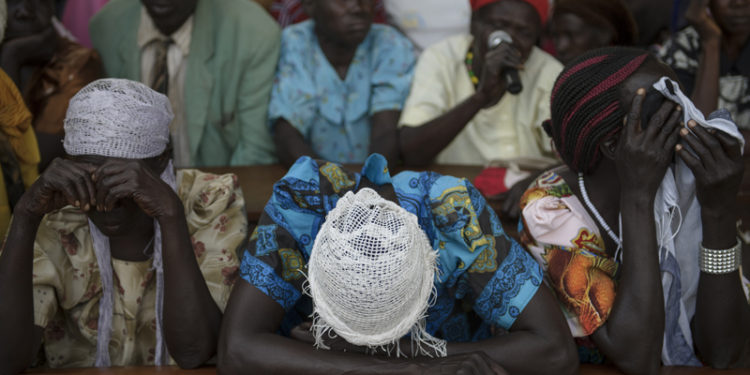By Peril Writer
In the heart of Uganda lies a tragedy that unfolds day by day, as families weep for their missing loved ones, ensnared in a web of political strife and bureaucratic indifference. The plight of those abducted or jailed for their political affiliations is a stain on the nation’s conscience, a testament to the fragility of justice and the callousness of power.
At the center of this sorrow stands Balaam Barugahara, newly appointed Minister of State for Youth and Children Affairs, tasked with the Herculean challenge of securing the freedom of jailed members of the opposition National Unity Platform (NUP). Yet, his promises, like whispers in a storm, may fade into the abyss of broken dreams, leaving behind shattered hopes and anguished souls.
Balaam’s entry onto the political stage, with his background in business, mirrors the collision of idealism with reality, as the corridors of power prove to be labyrinthine and unforgiving. His intentions, however noble, are shackled by the inertia of bureaucracy and the entrenched interests of those who wield power with impunity.
In the halls of parliament, the battle lines are drawn, as Balaam’s overtures are met with skepticism and defiance. Joel Ssenyonyi, the Leader of Opposition, stands as a sentinel of principle, challenging the machinations of a system that thrives on silence and submission. His demand for justice echoes through the chambers, a beacon of hope in a sea of apathy.
But justice, elusive as the morning mist, remains a distant dream for the families of the missing. Names like John Bosco Kibalama haunt the collective consciousness, their absence a gaping wound in the fabric of society. Despite the impassioned pleas of their loved ones, they languish in the shadows, forgotten by a nation that has lost its way.
The rhetoric of politicians, like a symphony of deceit, fills the air with empty promises and hollow words. President Yoweri Museveni, once hailed as a beacon of hope, now stands accused of betrayal, his legacy tarnished by the blood of the innocent. His pledge to uphold justice rings hollow in the ears of those who have suffered at the hands of his regime.
Nobert Mao, Minister of Justice and Constitutional Affairs, speaks of disgust and disillusionment, a lone voice in a wilderness of indifference. His condemnation of human rights abuses falls on deaf ears, as the machinery of oppression grinds on, indifferent to the cries of the oppressed.
Amidst the chaos and despair, the people of Uganda cry out for redemption, for a glimmer of hope in the darkness. But their cries fall on deaf ears, drowned out by the clamor of power and the deafening silence of complicity.
As the world looks on in horror, Uganda stands at a crossroads, torn between the promise of a brighter future and the specter of a past that refuses to die. The fate of the missing hangs in the balance, a testament to the resilience of the human spirit in the face of unspeakable tragedy.
In the end, the true measure of a nation lies not in its wealth or power, but in its ability to confront its darkest demons and emerge stronger for the struggle. For Uganda, the path ahead is fraught with peril, but also with the possibility of redemption. The question that remains is whether its leaders have the courage to choose the path of justice, or whether they will consign their people to a fate of endless sorrow and despair.







Discussion about this post